EUROVISION 2015: Onwards and Upwards!
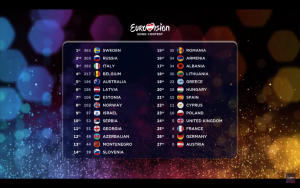
And so the curtain falls on another Eurovision Song Contest. A fantastic show which saw Sweden eventually reign supreme over Russia and Italy to regain the crown they last won in 2012. However, this Eurovision was not without controversy in the results. Firstly there’s the United Kingdom’s result to consider – more on that in my next post. And then there’s, well everything else. So let’s consider the issues in turn.
1. Sweden didn’t win the televote, Italy did.
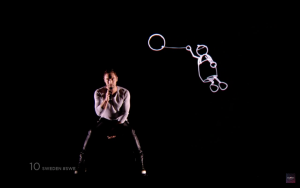
Alas, yes this is true. The juries and televoters did not agree this year, and just as in 2011 when such a situation arose, Italy are the “injured” party. In 2011 they won the jury vote, in 2015 they won the televote – maybe in 2019 they’ll manage to win both! This has been a much discussed issues. Some people have theorised that Italy might withdraw, others have called for the abandonment of jury voting saying it’s unjust that the people’s vote should be undermined. Personally – I think it’s a storm in a tea cup. Italy knew the rules when they took part, as did Sweden. I can’t see them withdrawing because of it. Also let us not forget why jury voting was introduced in the first place – to combat the bloc-voting of Eastern European countries that was simply ignoring the contributions of Western countries (debatably).

Jury voting is still very much a part of Eurovision. I do, however, would like to see the EBU do more to combat the blatant placing of some entries. For example there is no way that, if the criteria given by the EBU to the juries was applied properly that all Armenian jurors could rank Azerbaijan 26th and vice versa. Also I think the EBU should be going back to the 50% + 50% voting method that took place from 2009 to 2012 – and this is because I find it unethical that someone could televote for a country on Saturday night that has no chance of getting any points because the juries already ranked it below 20th. It’s something the EBU still needs to consider.
2. This year’s contest was too long
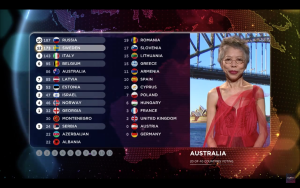
At four hours long this was by far the longest Eurovision ever – and arguably the one that held my attention the least. With 27 acts in the grand final this just didn’t work – and I think it’s time the EBU went back to the drawing board and had a massive shake up of how the grand final works. Only 10 or so years ago the EBU said the optimum number of songs in the contest was 24 or 25 – and I think they were right.
Here’s the issue – the number of semi finalists has gone down from 19 countries in each semi final (2008) to just 16-17 countries in each semi final this year. However, the number of automatic finalists has increased – originally 5 (the Big 4 plus the hosts), now it’s 6, or in the case of this year 7! (the Big 5 plus Australia and the hosts). The solution is logically simple. Now is the time to reduce the number of slots the semi finalists compete for. If just 9 slots were available instead of 10 then that would reduce the number of entries in the grand final down to a more manageable 24 or 25 – and avoid other situations like…
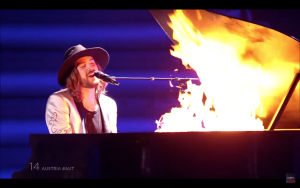
3. Austria and Germany didn’t deserve 0 points
Absolutely. They did not deserve nothing at all – they were good songs. Unfortunately they were overlooked and victims of the ranking system currently in place for the voting. It’s time the voting was looked at again (see point 1) and the number of countries was reduced back down to 24 or 25 (see point 2.)
4. The Big 5 are at a disadvantage because they don’t compete in the semi-finals
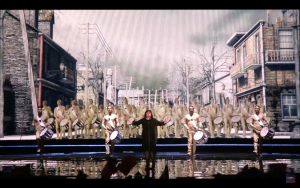
I think there is some truth in this. I think France, Germany, Italy, Spain and the UK have to work harder to secure votes on Saturday night than other countries because their exposure is less than the other competitors. I think it’s time the EBU reduced the pressure on the host country to provide 3 interval acts and instead told them that the interval acts for the semi-finals would be provided by performances of the host country and Big 5 entrants – thus increasing their exposure.
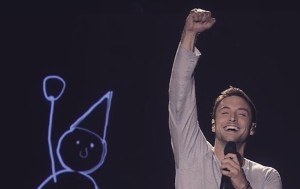
5. Producers shouldn’t choose where countries perform.
It’s a controversial one. In 2013 SVT abandoned the idea of countries drawing their performing positions in favour of them just choosing what half of the contest they performed in. The idea was that this would make for better television. However after three years of this system it does feel that some countries just aren’t getting a good deal. You could argue that those that send the best songs get the best slots and therefore those consistently sending good songs, consistently get good slots. However – is this is television programme or a song contest first and foremost? This is a really tough issue – I think it’s better if each country draws their own position. It makes the contest more exciting and unpredictable. It also raises the chances of diamonds in the rough coming out and potentially stealing the prize – Estonia 2001 I’m looking at you! Either way, I’ve a feeling with SVT playing hosts in 2016 we’re going to have to agree to disagree on this one….
And so, in conclusion
This was a great contest – but as always there are ways to improve the contest. Eurovision has evolved substantially over the last fifteen years and it will continue to do so – and that’s why we all love it so much (well, some of us anyway!) So thanks Eurovision for the last sixty years – and onto the next step!
Images used in this article are all copyright EBU, taken from the recorded performance as broadcast on the Eurovision Song Contest YouTube Channel.

